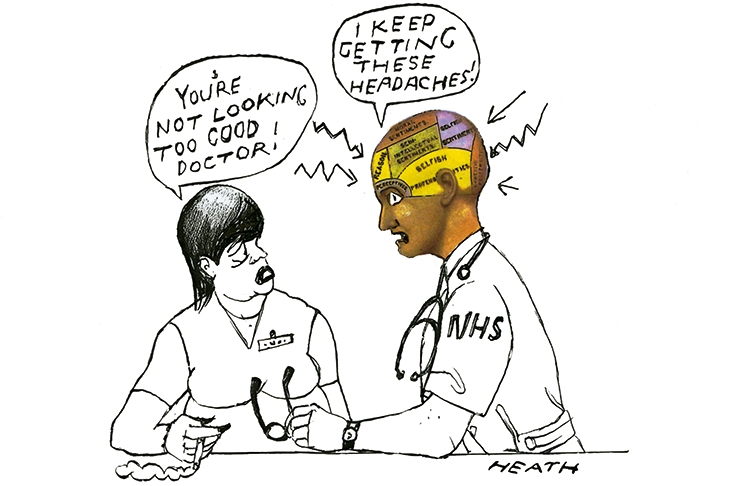Memory, neuroscientists tell us, is fallible. It is a dynamic process whereby each time we remember something, it will be changed. Our first memories are probably even less reliable, but I think mine is of Christmas 1953, when I was three. My mother was German and we celebrated Christmas in the German way. An English Christmas is a dull affair in comparison, with presents handed out by underslept parents on a cold and drab Christmas morning, around a tree decorated with electric lights. German Christmas would start on the first Advent Sunday with my mother making a wreath of fir branches and red ribbons, with four red candles. On each Saturday night before the four Advent Sundays we would clean our shoes and leave them outside the front door. In the morning we would find them magically filled with nuts and tangerines (a rare treat in the 1950s). St Nicholas would visit on St Nicholas’ Eve, leaving a sack of sweets and fruit on the doorstep. And every day we would open another door on an Advent calendar that dated back to my mother’s childhood in the 1920s, which had somehow survived the war. Christmas was celebrated on Christmas Eve with a real fir tree decorated with real candles and lametta. My main Christmas present in 1953 was an antique milking stool, which I am looking at as I write. I remember sitting on it — at least I think I do — 64 years ago, overwhelmed with joy at the sight of the Christmas tree and the fire burning in the stone fireplace of the 16th-century house we lived in at the time.
I retired from working full-time for the NHS two years ago but I continue to work in my hospital a few hours each week, mainly teaching the trainee surgeons. Medicine and the NHS have changed in so many ways since I qualified as a doctor almost 40 years ago that it is difficult to make meaningful comparisons. You did not choose neurosurgery as a career unless you were willing to sacrifice the greater part of your private and family life as you worked such long hours. But I managed to get just about enough sleep — and I could also look forward to a good income and considerable authority on becoming a consultant. The surgical trainees now — at least on paper — work only a third of the hours my generation worked but when they are on call they get no sleep whatsoever. This is because they are on the phone all night, as all the local hospitals now have brain scanners and any patient with even the most trivial neurological symptoms will be scanned and a neurosurgical opinion sought (though there is rarely a significant abnormality on the scan), so that responsibility for the patient is off-loaded from the hospital on to the neurosurgical department.
There is a similar phenomenon in general practice. GPs can now order MRI scans, almost always from private companies. Patients with backache can be dealt with by sending them off for a scan — a largely useless investigation for the condition. All of us develop ‘age-related’ changes in our spines from our twenties onwards and the MRI companies will report these insignificant changes and then conclude that ‘a neurosurgical opinion is recommended’. The GP then feels obliged to refer the patient to a neurosurgical outpatient clinic. The clinics in my department are bursting at their seams with these patients, scarcely any of whom need surgical treatment. And with the few patients who do need surgery, I was told last week, the consultant neurosurgeons must apply in writing to the clinical commissioning group responsible for allocating funds for treatment, for permission to operate. These are new bureaucratic entities, consisting of GPs, created by recent NHS reforms, which must provide an opinion about the specialist surgeon’s opinion. In which case, you may ask, why refer the patient to a surgeon in the first place? Or perhaps we need a further committee to validate the CCG’s opinion?
Big fleas have little fleas
Upon their backs to bite ’em,
And little fleas have lesser fleas,
and so, ad infinitum
There is no question that surgeons in the NHS feel increasingly flea-bitten.
I shall soon retire to my workshop to start making Christmas presents. In previous years I handed out honey from the bees I kept in my garden in London. To my great distress, my two colonies died this year. I had started with a single colony eight years ago and was devoted to them, although I was a very unprofessional beekeeper, allowing them to swarm whenever they felt like it. Fortunately, they swarmed into my neighbour Selwyn’s garden and, as his father had been a beekeeper, he tolerated this incursion with good humour. I have ordered a new colony for next spring.






Comments